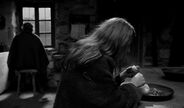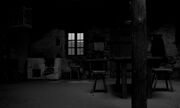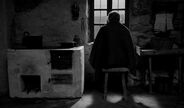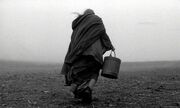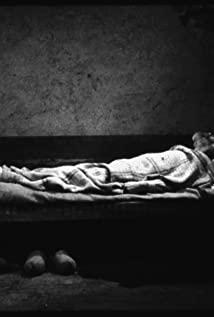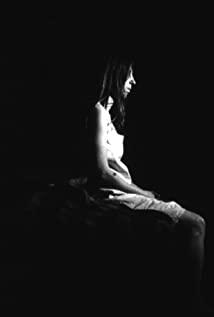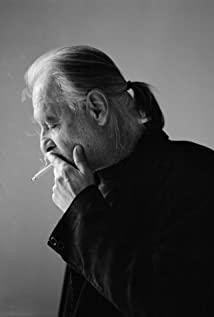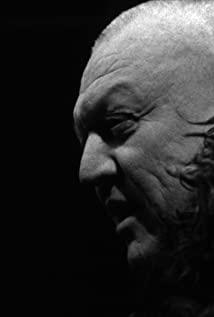My understanding of Bella Tal is limited, so I can only interpret the film based on my own understanding of Nietzsche. In my opinion, the film is a visual representation of Nietzsche's text.
Why Nietzsche is mentioned is written in the film introduction, so I won't go into details here. But, if only because of pity for the old horse, I can't imagine Nietzsche being hit so hard. What is it that caused Nietzsche to be so influenced, I think we can use the film to find out.
The tone of the film is not difficult to grasp, the silent long shots, the soundtrack that goes deep into the bone marrow, depressing and lifeless. What is the purpose of so much effort? I try to start with Nietzsche. In his book The Birth of Tragedy, Nietzsche believes that in the evolution of Greek tragedy from Aeschylus to Euripides, the spirit of "Dionysus" has been completely lost, and the spirit of "Sun God" has become "Nothing". "Water from the Source", which alludes to the philosophical crisis caused by taking the Socrates-Platonic school as the standard in philosophy. Nietzsche used "dream" and "ecstasy" to refer to the two spirits of the sun god and the god of wine respectively. The act of will embodied in Greek tragedy is to make these two spirits united, so that people find that only in the dream world everything has a beautiful appearance, and in the intoxicated world, people's emotional desires can be completely released. In simple terms, the Sun God represents form and rules, and the Dionysian represents the abundant impulse of life.
In the film, the two protagonists' monotonous lives are suffocating, getting up, dressing, fetching water, and eating potatoes. Life is almost formalized, without hope and without laughter. We see no signs of life. Can't see desire, can't see emotion. Nietzsche said that "The Birth of Tragedy" is concerned with serious life issues. In the film, we only see "Sun gods", rules, and consistent routines in the life of the protagonist. "Bacchus" is absent, and "Sun God" can only end up like the dry well in the film, with its source cut off.
There are two episodes in the middle of the film. One is that a fat man comes in to buy wine, and then thinks about it. The male protagonist dismisses the fat man and drives the fat man out. Isn't this character a real Zarathustra (from "Thus Spoke Zarathustra"), the same broken thoughts, the same declaration that God is dead, and all rules are nothing. Although helpless, he consciously shoulders the responsibility of conveying wisdom. We can say that the fat man in the film is actually the incarnation of Nietzsche. He wants to wake up the world, but there is nothing he can do. The second is a group of wanderers who look like gypsies, happy and even crazy, and are driven away by the anger of the male protagonist.
Comparing the two, it is such a lifeless tone that makes me realize with empathy that it is Nietzsche's obligatory duty to call upon the God of Bacchus, but it appears insignificant and helpless in the face of life. Even at the end, the male protagonist raised his glass, which seemed to be a call to the "Bacchus", but it was too late.
The spirit of "Bacchus" is like dust in the wind, rolling powerless, and ultimately unable to resist the power of the storm. This is not a tragedy, a tragedy belonging to Nietzsche, a tragedy belonging to everyone.
In the film, the heroine picks up the Bible and reads aloud unskilledly. Even if she doesn't understand it, it seems to be just belief. Such a boring and boring life becomes tolerable. The root of the loss of the spirit of "Bacchus" in ancient tragedies lies in the setting of a supreme (absolute) "idea". The setting of this concept gives people a false "sustenance". It seems that with this "idea", all the pain and evil in the world can be "understood", and the world becomes "reasonable" and bearable. The ancient tragedy with the spirit of Dionysus does not recognize the "destiny-fate" of the idea. Tragic heroes create their own destiny and create their own lives.
In the development after the Greek tragedy, the "Sun god" spirit became more and more important, while the "Bacchus" spirit was deeply "buried". Nietzsche's task was to awaken this "original" Dionysian spirit. This masked spirit is not animal, but the "prototype of man", which expresses the "highest" and "most powerful" vitality.
In the film, the one with the most vitality is the old horse who is unwilling to work. The galloping steed itself has been given a responsibility by humans, and at this time, the horse has lost its own vitality. Lao Ma's resistance and tears actually contained an accusation that his vitality had been plundered. It is not difficult to imagine how desolate and helpless Nietzsche felt when he cried bitterly while holding the old horse beaten on the streets of Turin.
It takes a lot of perseverance to calm down and watch this film. This kind of dullness may be the truth of life that Bella Tarr wants to express. Long and monotonous, it is this singleness that eats away the vitality and finally sinks into darkness.
In the history of philosophy, Nietzsche is both a finisher and an opener. Nietzsche may be extreme, just because it is not enough to challenge the philosophical mainstream that has lasted for thousands of years. Nietzsche's practice is like the hero of ancient Greek tragedy. Only the old horse on the streets of Turin walks with him.
View more about The Turin Horse reviews



